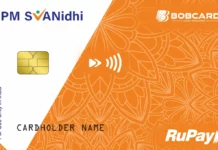It was around the late 2000s that online gaming really took off in India. Ever since it has both the young and the old hooked. Thanks to increasingly fast and reliable internet, online gaming has only seen its popularity rise over the years. While there are many reasons why such games enjoy a wide appeal, one that is often overlooked is their reward system.
As humans, we crave appreciation. Whether it’s a pat on the back for a job well done or a more tangible payoff, rewards go a long way in motivating us. Online games often use this risk-reward approach to design a satisfying user experience. When players hope to unlock new levels, or win bonuses and cash rewards, their excitement shoots up.
Let’s check out some of the ways in which game designers adopt this strategy to enhance the playing experience to keep enthusiasts coming back.
Coins
Some games feature credits in the form of coins that players must collect while going through different levels or tasks. These coins are generally placed in a ‘constant interval schedule’ fashion; that is, at strategic game points. They can be used to make in-app purchases or unlock levels within the game. Introducing coin currency in a game motivates players to increase their character’s ‘wealth’, which keeps them engaged. The number of coins collected also gives the players major bragging rights! This, however, does not include any real currency.
Cash prizes
Unlike pay-to-win games where players have to shell out money to upgrade the graphics or move on to the next level, some online platforms give users an opportunity to win real cash. Through such skill-based rewards, users are encouraged to spend more time playing the game and mastering it. The incentive to win cash prizes while having a lot of fun does boost one’s interest in the game. Indian Rummy downloads are easy too – just visit the website or download the app from Google Play.
Loot boxes
These are a relatively new addition to online gaming. What makes them interesting is the mystery. Players usually don’t know when they’ll find a loot box or what they’ll find inside one. Loot boxes work on a ‘changeable ratio schedule’, which means they are not fixed at regular intervals. Players cannot anticipate the number of moves or levels they will have to cross to come across a loot box. This unpredictability keeps them engaged.
In-app currency
In some games, rewards in the form of gems or fortune can be collected and exchanged for vouchers, cashback, and other offers. These days, gaming platforms collaborate with online retail or entertainment websites to achieve this. For instance, the highly popular game Temple Run gives users the opportunity to collect ‘diamonds’ at differently spaced intervals.
Loyalty points
It’s not just online games; even retailers use this system to keep customers engaged. Loyalty points are rewards offered to users or customers to retain them. Games often feature these so players keep coming back for more – and remain loyal to the platform.
Given how competitive the gaming industry is, it isn’t hard to see why games would feature loyalty points to retain users. These popular loyalty and rewards program appreciate and encourage players to work more on their game and do what they love – play rummy online!
Why rewards work
Online games that feature rewards and bonuses can be very addictive because they allow players to win a lot of money in the form of currency and other incentives. This idea of a reward (monetary or otherwise) is not limited to the domain of online gaming. Hotels, airlines, online shopping websites, all use this strategy to draw in new customers and engage existing ones.
What makes rewards such an effective way to gain loyal users? More than anything, rewards make one feel good. The reason is biological. Unlocking new levels or getting discounts for shopping for a certain amount increases our satisfaction with the brand. It tricks the brain into processing the reward as a ‘treat’ and releases a hormone called dopamine, which produces a ‘feel-good’ sensation.
For example, on scoring well in PUBG, players get a ‘chicken dinner’, which can be used in subsequent levels to unlock new skins. Since players (and humans in general) want to replicate this positive feeling, they get hooked on to the game. And so they spend more time on the platform, making more purchases and investing greater sums.
In essence, rewards are gifts to loyal users. The sense of accomplishment they bring goes a long way in keeping players hooked. In addition, there’s the thrill of getting something back from a game they have invested in. By increasing player motivation for completing tasks, rewards encourage competition. Some researchers even say it’s perhaps not the reward itself but its anticipation that really drive gamers to keep playing.
Engaging players with rewards
The reward system gives the users a huge incentive to return over and over to their preferred websites, applications, and games. By gifting them with cash, merchandise, vouchers, and other bonuses, reward systems essentially honour player loyalty. This is why almost every industry is adopting this trend to design better experiences.
After all, any loyal and engaged user who can have fun and earn money at the same time is going to stick with the platform for a long time!







